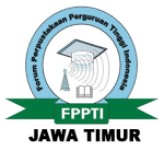Student Health Information Literacy Against Pandemi Covid-19 (Study for Students FISIP, University of Bengkulu
Downloads
Background: Health is becoming important today, especially during a pandemi situation. Everyone needs to take care of their health to avoid Covid-19. There are many information that students can use in maintaining their health from the internet. This is the basis for researchers to see student health information literacy.
Research objectives: to determine the health information literacy of students from Faculty of Social and Political Sciences, University of Bengkulu and see the relationship between gender and study program with the dimensions of health information literacy.
Research Methods: This study uses quantitative research using sample of 95 students of the Faculty of Social and Political Sciences, University of Bengkulu. The determination of the sample is based on the stratified sampling.
Finding: Respondents already have health information literacy, especially information on Covid-19. The majority of respondents have an interest in finding information about Covid-19. Respondents already have health information literacy skills in the aspects of identifying, searching for, finding, and using the Covid-19 information they find. Female respondents have more health information literacy than men. In this type of education, Journalism study program students have information literacy compared to other study programs, especially in finding, evaluating and using Covid-19's information.
Conclusion: The results of this study indicate that students of the Faculty of Social and Political Sciences, University of Bengkulu have health information literacy skills in seeking information on Covid-19 during the pandemi season.
Downloads
Copyright (c) 2021 Fransiska Timoria Samosir

This work is licensed under a Creative Commons Attribution-ShareAlike 4.0 International License.
Record and Library Journal by Unair is licensed under a Creative Commons Attribution-ShareAlike 4.0 International License.
1. The journal allows the author to hold the copyright of the article without restrictions.
2. The journal allows the author(s) to retain publishing rights without restrictions
3. The legal formal aspect of journal publication accessibility refers to Creative Commons Attribution Share-Alike (CC BY-SA).
4. The Creative Commons Attribution Share-Alike (CC BY-SA) license allows re-distribution and re-use of a licensed work on the conditions that the creator is appropriately credited and that any derivative work is made available under "the same, similar or a compatible license”. Other than the conditions mentioned above, the editorial board is not responsible for copyright violation.


 57201398420
57201398420

























